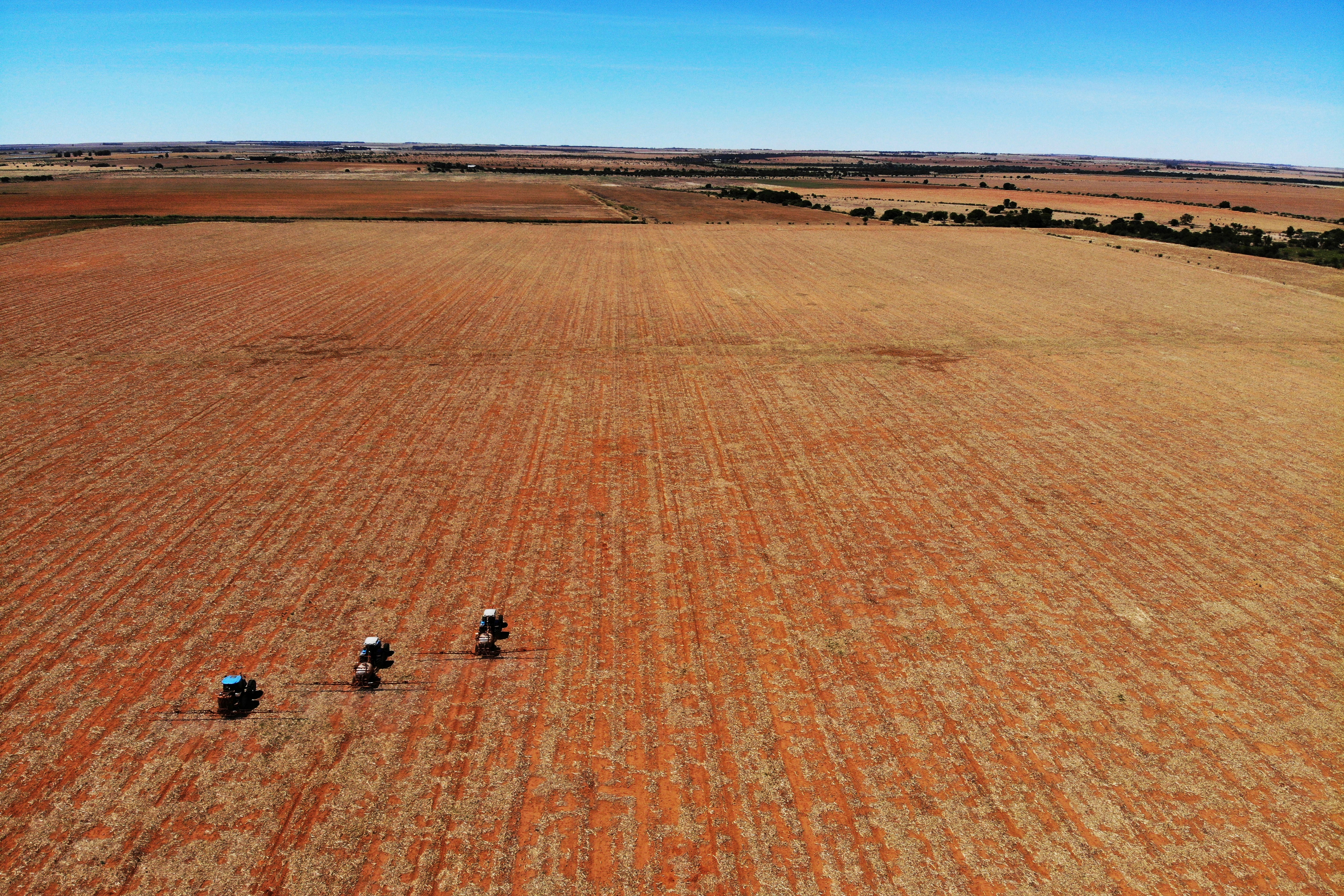Our food was under threat before Putin invaded Ukraine – now it’s getting worse
Just look at some of this year’s headlines on crop failures, writes Donnachadh McCarthy

The UN is warning that the climate emergency threatens the collapse of civilisation, but it is not rising sea levels or hurricanes that will topple us first – it’s the destruction of food crops. There is nothing like starvation or famines to provoke riots or mass migration.
Last year, the think tank Chatham House warned about the growing risk of simultaneous extreme weather events, wiping out crops in the top four food baskets, rising from 0.1 per cent now to a 50 per cent chance within 20-30 years.
But extreme weather events exacerbated by climate change are already hitting global food supplies and imposing crippling inflation on millions of people, including in the UK.
Here is a taste of just some of this year’s headlines on extreme weather and crop failures:
- One in five South African grain producers lose 60 per cent of white maize plantings
- Prolonged drought in Brazil, Argentina and Paraguay severely impacting harvests
- China faces worst crop conditions ever, due to climate change. Winter wheat crop down 20 per cent
- A third of all corn grown in the US is now in an official drought area
- In the Horn of Africa, three consecutive dry seasons has driven hundreds of thousands from homes, killed swathes of livestock and destroyed crops
- In India, yield from wheat dropped 50 per cent in areas worst hit by extreme temperatures
- Unprecedented drought in France causes drop of 30 per cent in crops
- Niger and Mauritania produced 40 per cent less food. Mauritanian biomass production down 80 per cent in areas affected by bushfires and drought
- Fourth drought year impacts corn crops in eastern Germany
- Pakistan farmers reporting up to a third of crops failing due to extreme heat-related drought
- Nasa warns the western US is experiencing one of the worst droughts ever seen
A recent report by the UN Convention to Combat Desertification (UNCCD) found that since 2000, the number and duration of droughts has risen nearly by a third. The latest IPCC report warned that up to 700 million people could be displaced by drought by 2030.
Martin Frick, director of the World Food Programme (WFP) in Berlin, told me that the climate crisis was definitely a contributor to this year’s global food cost inflation. He warned that climate-related food shortages could lead to political instability, failed states and millions of refugees moving in desperation to survive.
He said it was important to note that 60 per cent of the recent food price inflation occurred before Putin invaded Ukraine. The climate crisis was lurking behind almost every food emergency that the WFP is dealing with.
He also listed positive actions governments can take to reduce climate exacerbated famines.
We must stop pouring so much of our food into meat production and biofuels manufacturing. For example, in Germany he said 60 per cent of cereal production goes to livestock and 16 per cent to biofuels.
We also need to return to the tradition of only eating meat for the Sunday roast and not devouring meat with every single meal.
Agriculture needs to move away from its dependency on just three main staple crops (wheat, rice and maize) producing 40 per cent of global calories. They are all vulnerable to declining outputs from rising temperatures and drought. Instead, agro-ecology and agro-forestry need to be encouraged, with smaller diverse farms better able to manage climate impacts and regenerate damaged soils.
To keep up to speed with all the latest opinions and comment, sign up to our free weekly Voices Dispatches newsletter by clicking here
He enthusiastically recounted how women in Niger were planting acacia trees (Faidherbia albida) in half-moon-shaped hollows, which trap the rain and enable the trees to thrive despite the shortage of rain.
The shade from these trees reduces ground temperatures by up to 6C and their roots are nitrogen-fixing, thus creating a better micro-climate and fertile soils for other food crops.
Martin’s final warning, though, was that such essential efforts will be worthless if we allow the climate crisis to keep moving inexorably upwards, from its current 1.2C rise in temperature emergency to a 3.6C rise apocalypse.
Subscribe to Independent Premium to bookmark this article
Want to bookmark your favourite articles and stories to read or reference later? Start your Independent Premium subscription today.

Join our commenting forum
Join thought-provoking conversations, follow other Independent readers and see their replies